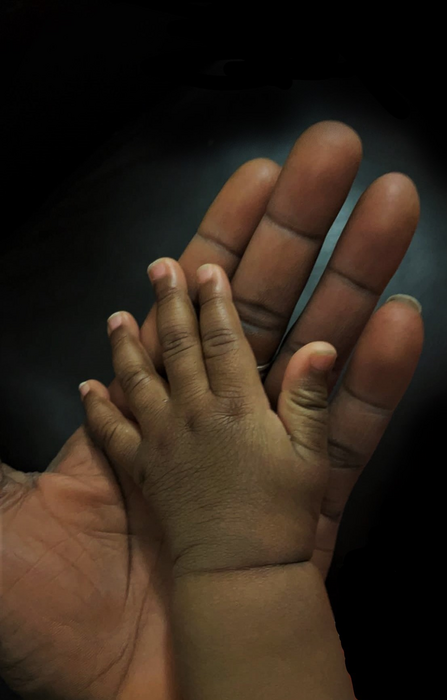Mothers in the samples from the UK and Uganda have different attitudes toward parenting, but while on a group level the experience and development of their infants sometimes aligns with parenting attitudes, surprisingly, it did not always show such variation, according to a new study published this week in the open-access journal PLOS ONE by Eve Holden and Katie Slocombe of University of York, UK, and colleagues.

Credit: Holden et al., CC-BY 4.0 (https://creativecommons.org/licenses/by/4.0/)
Mothers in the samples from the UK and Uganda have different attitudes toward parenting, but while on a group level the experience and development of their infants sometimes aligns with parenting attitudes, surprisingly, it did not always show such variation, according to a new study published this week in the open-access journal PLOS ONE by Eve Holden and Katie Slocombe of University of York, UK, and colleagues.
Early life experiences, including those shaped by parental behaviors, are known to affect infant learning and development. There is considerable cultural variation in parenting practices, which may be underpinned by varying attitudes toward parenting and infant development. Most studies examining how parenting impacts infant development rely on attitude questionnaires or observations of behavior in a single context. It has been unclear whether these attitudes or behavior snapshots are representative of behavior in broader contexts.
In the new work, the researchers studied 53 mother-infant dyads in the UK and 44 mother-infant dyads in Uganda. Mothers and their babies were followed for full eight-hour days at five time points, when the infants were 3, 6, 9, 12 and 15 months old. Data about parental attitudes and behaviors were also collected research sessions of up to 4 hours in participants’ homes.
The study revealed that Ugandan mothers had, on average, more relational attitudes toward parenting, whereas UK mothers tended to more strongly focus on autonomy. This translated into certain differences in parenting behaviors: Ugandan infants received more distributed caregiving (i.e. more caregivers), more body contact with their mothers, and more proximity to mothers at night. However, attitudes toward specific behaviors did not predict infant experience in all contexts. Contrary to the researchers’ expectations, for instance, Ugandan infants were not in closer proximity to their mothers during the day, did not have more people in proximity or more partners for social interaction compared to UK infants. Despite the UK mothers’ greater focus on self-development, more of the Ugandan infants showed earlier physical development compared to UK infants.
The authors describe how “infants’ early life environment varies cross-culturally in many important ways” but add that the findings highlight the importance of measuring behavior, rather than extrapolating expected behavior based on attitudes alone.
The authors add: “Most of us know that among our friends and family there can be a lot of variation in attitudes towards parenting – in our study we looked at this across two samples of participants from quite different backgrounds and looked at how attitudes may or may not match up to infant experience and development. We found that cultural attitudes about parenting seem to relate to infant experience in some ways, but not others – this shows the interaction between attitudes and infant experience is quite complicated and there could be many things that influence infant experience beyond parents attitudes.”
#####
In your coverage please use this URL to provide access to the freely available article in PLOS ONE: https://journals.plos.org/plosone/article?id=10.1371/journal.pone.0278378
Citation: Holden E, Buryn-Weitzel JC, Atim S, Biroch H, Donnellan E, Graham KE, et al. (2022) Maternal attitudes and behaviours differentially shape infant early life experience: A cross cultural study. PLoS ONE 17(12): e0278378. https://doi.org/10.1371/journal.pone.0278378
Author Countries: UK, Uganda, USA
Funding: This research was funded by an ERC (European Research Council: https://erc.europa.eu/funding) Consolidator grant to KES (ERC_CoG 2016_724608). The funders had no role in study design, data collection and analysis, decision to publish, or preparation of the manuscript.
Journal
PLoS ONE
DOI
10.1371/journal.pone.0278378
Method of Research
Observational study
Subject of Research
People
Article Title
Maternal attitudes and behaviours differentially shape infant early life experience: A cross cultural study
Article Publication Date
21-Dec-2022
COI Statement
The authors have declared that no competing interests exist.




